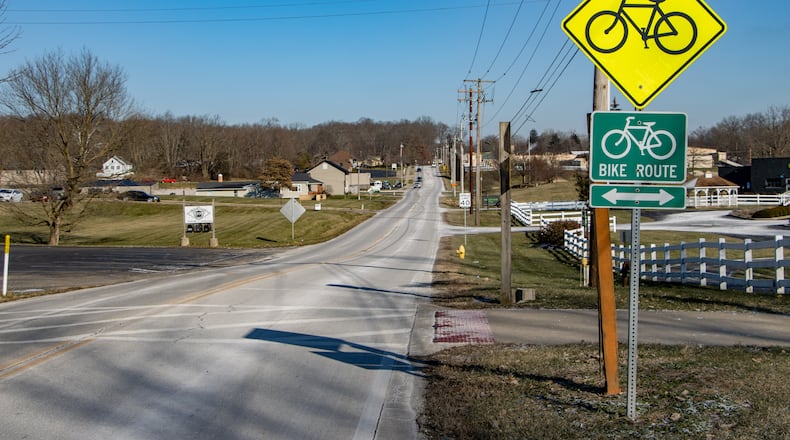Beavercreek is planning to resurface approximately 5.67 “center-line” miles of streets in 2022, a drop from nearly 17 miles in 2021. The city paved an average of 13.33 miles of roads from 2015-2020. The city currently allocates $2.3 million each year to repave and repair streets and curbs.
Rising costs also have caused a delay of a major resurfacing project on North Fairfield Road between Commons and Crossing Boulevards near the mall. The city budgeted $1.3 million for the resurfacing project, but the lowest bid received was $2.3 million, leading the city to reject all of the bids and delay the project to 2023.
“The city has 253 centerline miles of roads,” said city manager Pete Landrum. “At this rate, if we are only able to repave the streets included in this year’s program, it would take the city nearly 45 years to repair and/or replace every street in Beavercreek, whereas the average lifespan of a road is 20 to 25 years. This calculation does not take into consideration new or widened roads that will be added in the future that the city will also be responsible for maintaining.”
Beavercreek relies heavily on federal and state grants to fund road projects, the city said, but grants don’t typically cover routine maintenance and repaving.
Beavercreek’s American Rescue Plan Act funding will not be used used for the road projects, and the portion the city will be responsible for will be paid by tax levy dollars, according to Landrum.
The majority of the city’s $5 million in COVID-19 relief funding has been dedicated to infrastructure projects, with a focus on stormwater systems, which currently have no dedicated funding source, he said. The city is currently conducting a stormwater study to determine the number of projects needed and their costs throughout the city.
“We hope to repave additional streets this year, if possible,” Landrum said.
Beavercreek also is asking residents to approve a new 1% income tax in the May 3 election. If that passes, some of the funds raised would go toward infrastructure projects.
Beavercreek is not alone with these cost increases, as Huber Heights schools and the cities of Troy, Kettering and Lebanon cited similar problems with planned projects in the past month.
Two road-widening projects, on Grange Hall Road and Shakertown Road, are expected to proceed as planned. Projects for both roads are grant-funded, and the city could lose those grants if the projects are not completed within the expected timeline. Some grants are awarded years before a project is started, so the city is responsible for any increase in costs, including factors of inflation.
The city plans to open bids for Grange Hall Road in 2023. Bids for Shakertown Road will be advertised in the coming weeks. If bids for either of these projects do not fall within the city’s budgetary estimates, then the city will be responsible for the increase in costs.
“This is not sustainable,” said Landrum. “Currently, the city does not have any funding for sidewalk replacement or stormwater projects, so as the costs of street projects increases, so does the city’s backlog of infrastructure.”
The city expects to soon receive additional bids for two other projects: the creation of McGrath Way, formerly part of Lantz Road, and replacing all of the traffic signals and poles at two intersections, one along Dayton-Xenia Road, the other along North Fairfield Road.
McGrath Way has already been postponed to 2023 due to a delay in materials, and if bids for the intersections do not fall within the city’s budgetary estimates, that project may also have to be delayed.
About the Author

